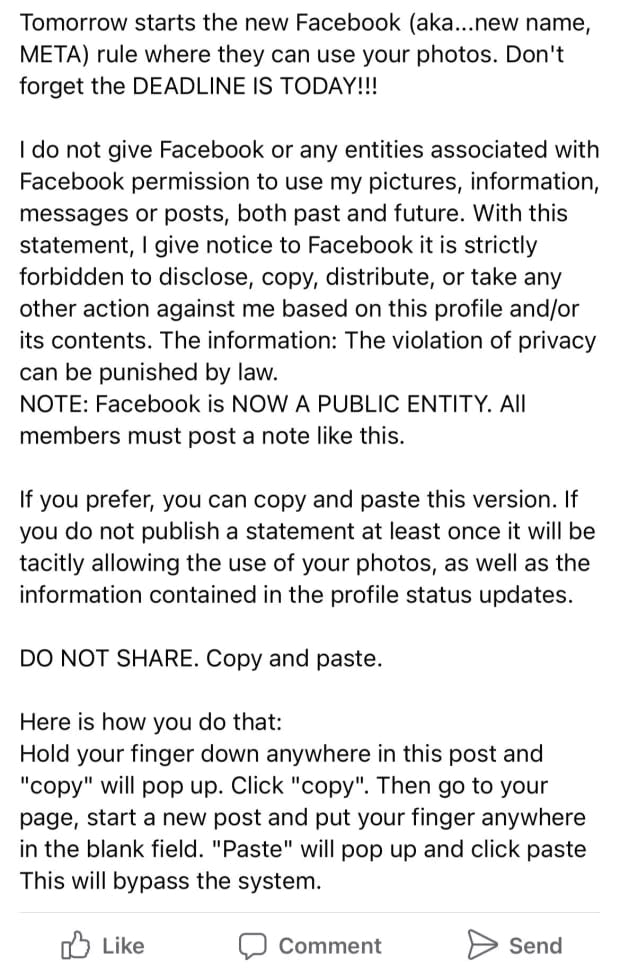Why You Shouldn't Hit 'Copy and Paste' on the Viral Facebook Privacy Scam
The Facebook privacy hoax is making its way back onto social media feeds… again.
There's one thing you have to remember before you click “copy and paste” on yet another Facebook message warning about photo privacy—it’s completely fake.
The hackneyed post scam has made the rounds for years, popping up every few months or so with a version of a message that urges users to share it as their Facebook status to ban the social media giant from "using or sharing any personal data or photos."
If you’ve been on Facebook for a while, you’ve probably seen this scam—which reads like a chain mail hoax—picking up steam every so often. And there's a reason it spreads like wildfire, as people will go above and beyond to protect their personal information.
The urgency in the language also makes it convincing as it instills fear—if you don’t act now and repost the copy, you’ll face the consequence down the line.
However, it’s important to note that if you see this message pop up, you do not have to do anything because it’s not real.
Posting “I’m not giving Facebook/Meta permission" doesn’t do anything, as users agree to let the social media platform have access to their personal information in some capacity when signing up. When creating an account, we all agree to privacy policies and legal terms.
The platforms’ data policy page is also transparent when it comes to data collection, stating that they “collect the content, communications and other information you provide when you use our Products, including when you sign up for an account, create or share content, and message or communicate with others.”
In 2019, Forbes published a piece about these types of “copy and paste" scams, warning users that one easy way to distinguish a hoax from a real message is to pay attention to spelling and grammar.
Many of these messages have misspelled words or improper capitalizations.
Another red flag includes messages that threaten litigation, reference court cases, or state anything out of the ordinary like: “An attorney advised to post this. The violation of privacy can be punished by law.”
The outlet also emphasized that posting a blanket statement doesn’t actually accomplish anything, nor can it reverse Facebook’s policies that you already agreed to in the terms and conditions.

Some of the messages that go viral include language about Facebook now being a “public entity,” which Forbes also noted was “irrelevant” as “public entity in itself does not give companies more rights to disclose your content or violate your privacy.”
In 2021, when another round of misinformation began spreading, Facebook responded to a request from a FOX news outlet noting: “People can continue to control their privacy preferences using the many user friendly self-serve tools we provide on Facebook, such as Privacy Checkup, and learn more about how we use and protect data in our Data Policy.”
So, in short, update your privacy settings as you see fit and scroll on by the next time you see that message pop up.
